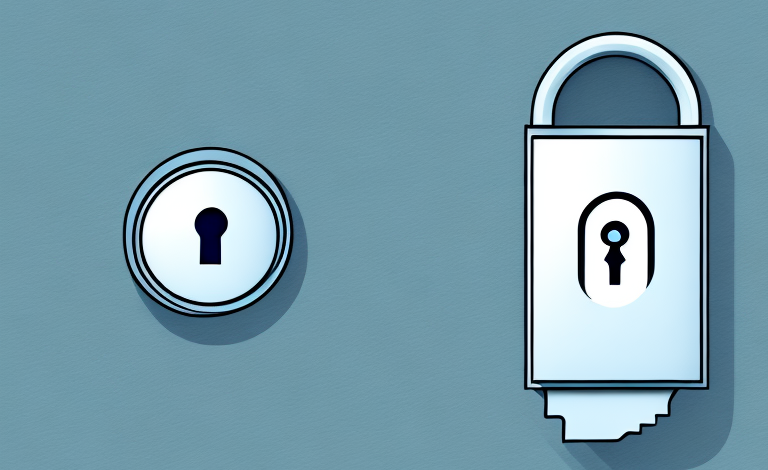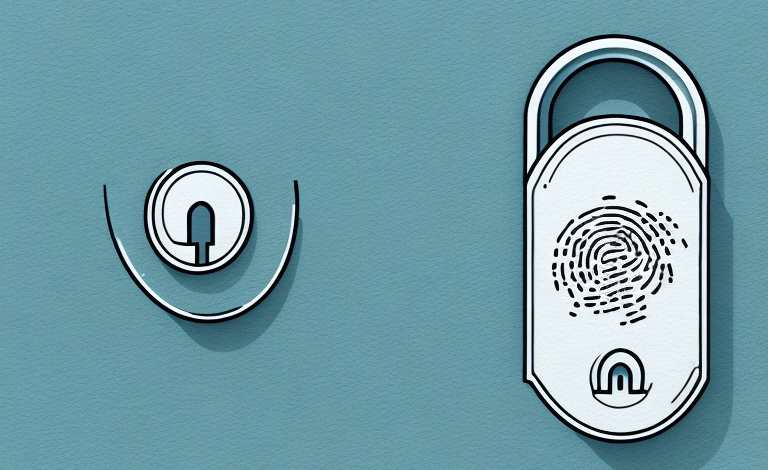Security is one of the most important concerns for any homeowner or renter. Traditional locks have been around for centuries and have been relied upon to keep homes and properties safe from intrusion. However, with the advent of technology, smart locks have become increasingly popular as an alternative to traditional locks. In this article, we will explore the advantages and disadvantages of smart locks and determine whether they are a good idea for your home or property.
What are smart locks?
Smart locks are electronic locks that can be accessed and controlled through a smartphone or other smart device. They use WiFi or Bluetooth to connect to other devices and can be programmed to lock and unlock according to specific schedules. Smart locks can also be controlled remotely, so you can open or lock your doors from anywhere in the world.
One of the main benefits of smart locks is that they provide an added layer of security to your home. With traditional locks, keys can be lost or stolen, and locks can be picked. Smart locks, on the other hand, use advanced encryption and authentication methods to ensure that only authorized users can access your home. Additionally, many smart locks come with features like activity logs and alerts, so you can keep track of who is coming and going from your home at all times.
How do smart locks work?
Smart locks use a variety of technologies to function. Some use WiFi to connect directly to the internet, while others use Bluetooth to connect to a nearby device like a smartphone or tablet. Some smart locks may use both WiFi and Bluetooth for added security. Most smart locks come with their own app that can be downloaded to a smart device for programming and control.
One of the key features of smart locks is their ability to be controlled remotely. This means that you can lock or unlock your door from anywhere in the world, as long as you have an internet connection. This can be particularly useful if you need to let someone into your home while you’re away, or if you forget to lock your door before leaving.
Another advantage of smart locks is that they can be integrated with other smart home devices, such as security cameras and doorbells. This allows you to create a fully automated home security system that can be controlled from a single app. For example, you could set your security camera to start recording whenever your smart lock is unlocked, or receive a notification on your phone whenever someone enters your home.
Advantages of using a smart lock
One of the biggest advantages of using a smart lock is the ability to control your locks remotely. This makes it easy to let in house guests, service providers, or even your own family members when you’re not at home. Smart locks also offer the convenience of being able to schedule lock and unlock times, so you don’t have to worry about forgetting to lock up when you leave the house in the morning.
Another advantage of smart locks is their compatibility with home automation systems. Smart locks can be integrated with other smart devices such as lights, thermostats, and security cameras, giving you complete control over your home’s security and energy usage.
Smart locks also provide an added layer of security compared to traditional locks. With features such as keyless entry and biometric authentication, smart locks make it difficult for intruders to gain access to your home. Additionally, some smart locks come equipped with tamper alerts, which notify you if someone tries to tamper with the lock.
Finally, smart locks can also help you keep track of who enters and exits your home. Many smart locks come with a log that records every time the lock is opened or closed, giving you a clear picture of who has been in your home and when. This can be especially useful for keeping track of service providers or house guests.
Disadvantages of using a smart lock
Smart locks are expensive compared to traditional locks, so they may not be a practical option for everyone. They also require a reliable internet connection for remote access, which can be a problem in areas with poor connectivity. It’s also not uncommon for smart locks to experience technical glitches, which can cause inconvenience and frustration.
Another disadvantage of using a smart lock is the potential for hacking. As with any device connected to the internet, smart locks are vulnerable to cyber attacks. If a hacker gains access to your smart lock, they could potentially unlock your door without your knowledge or consent. This can be a major security concern, especially for those who use smart locks to secure their homes or businesses.
Can smart locks be hacked?
Like any electronic device, smart locks are susceptible to hacking. However, most smart locks come with a host of security features to prevent this from happening. They use encryption protocols, multi-factor authentication, and other measures to protect against unauthorized access. Additionally, smart lock companies stay up-to-date with the latest security measures and release regular software updates to ensure their products are secure.
Despite the security measures put in place, there have been instances where smart locks have been hacked. In some cases, hackers have been able to gain access to the lock through vulnerabilities in the software or by intercepting the communication between the lock and the user’s smartphone. It is important for users to regularly update their smart lock’s software and to use strong, unique passwords to minimize the risk of hacking. It is also recommended to purchase smart locks from reputable companies with a proven track record of security.
Smart locks vs traditional locks – which is better?
The choice between a smart lock and a traditional lock depends largely on personal preference and security needs. Traditional locks are simple, reliable, and affordable, but they lack the convenience and flexibility of smart locks. Smart locks are expensive, but they offer remote access, scheduling, and compatibility with other smart devices that traditional locks cannot match.
However, it is important to note that smart locks are vulnerable to hacking and other cyber threats. This means that if you choose to install a smart lock, you must ensure that it is properly secured and updated regularly to prevent unauthorized access. On the other hand, traditional locks are not susceptible to these types of threats, making them a more secure option for those who prioritize safety over convenience.
Types of smart locks available in the market
Smart locks come in a variety of styles and designs to suit different security needs and aesthetic preferences. Some popular types of smart locks include keypad locks, key fob locks, and biometric locks. Keypad locks require a numerical code to unlock, key fob locks use a remote key fob similar to those used for car locks, and biometric locks use fingerprints or facial recognition to unlock.
In addition to these popular types of smart locks, there are also hybrid locks that combine traditional key access with smart technology. These locks allow users to unlock the door with a physical key or through a smartphone app. Another type of smart lock gaining popularity is the retrofit lock, which can be easily installed on existing deadbolts without the need for extensive modifications to the door. With so many options available, it’s important to research and choose a smart lock that best fits your specific security needs and lifestyle.
Features to consider before buying a smart lock
Before purchasing a smart lock, consider the following features:
- Compatibility with your smart device
- Types of access methods (keypad, key fob, biometric, etc.)
- Battery life and backup options in case of power outage
- Security features and encryption protocols
- Integration with home automation systems
- Price and warranty
Another important feature to consider before buying a smart lock is the level of convenience it offers. Some smart locks come with features such as auto-lock and auto-unlock, which can be very convenient for homeowners who are always on the go. Additionally, some smart locks allow you to grant temporary access to guests or service providers, which can be very useful if you frequently have visitors or need to allow access to your home while you are away.
Installation and setup of a smart lock
Installation and setup of a smart lock vary depending on the model and manufacturer. Most smart locks come with detailed installation instructions and may require some basic DIY skills. The setup process usually involves downloading the manufacturer’s app, connecting the lock to your smart device, and programming any desired access codes or schedules.
Compatibility with home automation systems
Many smart locks integrate with home automation systems like Amazon Alexa, Google Assistant, or Apple HomeKit, allowing you to control your lock through voice commands. They can also work with other smart devices like security cameras, lights, and thermostats, allowing you to monitor and control your home’s security and energy usage from a single app.
Cost comparison of traditional locks vs smart locks
Traditional locks are generally much cheaper than smart locks, with prices ranging from around $10 to $50 for a basic lock set. Smart locks can cost anywhere from $100 to $500 or more depending on the features and brand. However, smart locks may save you money in the long run by reducing energy usage and preventing break-ins or thefts.
Smart locks for Airbnb hosts and rental properties
Smart locks are an excellent option for Airbnb hosts and rental property owners. They allow you to grant temporary access codes to guests, monitor access and schedule cleaning services without having to be present. They also offer an added level of security, ensuring that guests cannot duplicate keys or access the property after their stay is over.
Customer reviews and ratings of popular smart lock brands
Before purchasing a smart lock, it’s worth checking out customer reviews and ratings to get an idea of how well the lock performs. Some popular smart lock brands include August, Nest, Yale, Kwikset, and Schlage. Look for locks with high ratings for ease of use, reliability, and security features.
The future of smart locks: What to expect in the coming years?
The future of smart locks is promising, with continuous innovations in technology and security features. Some expected developments include improved voice recognition, advanced encryption protocols, and integration with artificial intelligence and machine learning. As the world becomes increasingly connected, smart locks are sure to become a staple in many homes and properties.
Conclusion
Smart locks offer convenience, flexibility, and added security compared to traditional locks. While they are more expensive than traditional locks, their ability to integrate with other smart devices, schedule access, and provide remote control make them a viable option for many homeowners and renters. It’s essential to consider factors like compatibility, security features, and cost before purchasing a smart lock. Additionally, staying up-to-date with the latest technological advancements in smart lock technology can help you make an informed decision about whether or not a smart lock is right for you.



